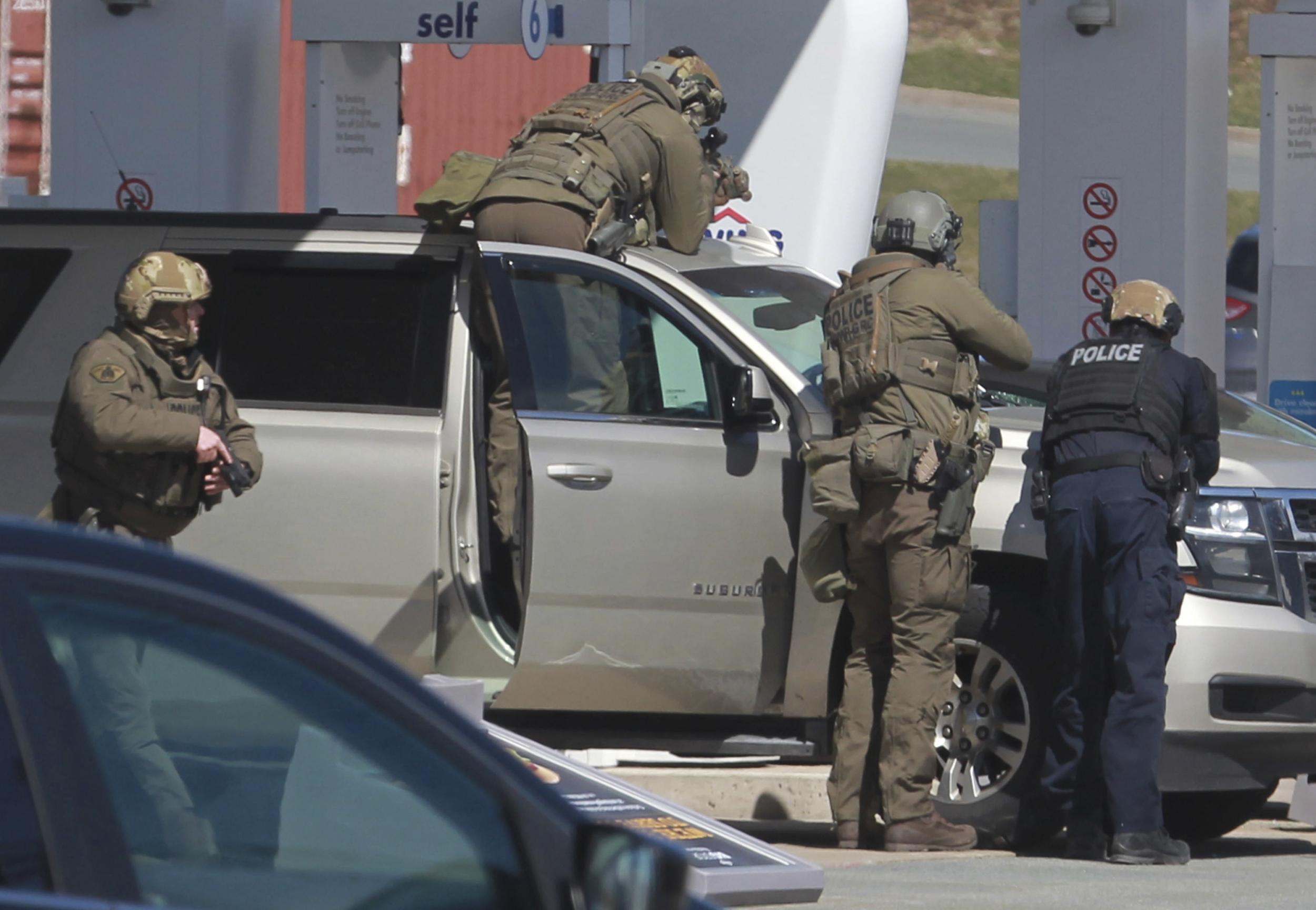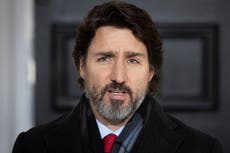Justin Trudeau’s gun control measures don’t go nearly far enough
The Canadian prime minister has banned 1,500 assault-style weapons, subject to a two-year amnesty


In October 2019, I stood in a drab hotel conference room in downtown Toronto for an election campaign event on gun control. Lining the curtained back wall, perched on stools, were two rows of experts, mostly nurses, doctors and social workers. To their right, on a stool of his own, sat Justin Trudeau, Canada’s prime minister.
Fighting for his political life after a blackface scandal, and with a general election three weeks away, Trudeau, who called on each expert in turn, was in campaign mode. After a couple of questions about his party’s gun control policies, the media turned to other issues. Eventually, Trudeau strode out, towards his motorcade and another event.
The content, though, had been arresting. One after another, the panellists delivered a verbal catalogue of violence, pain and death from the streets of Toronto, Canada’s biggest city, where gun violence is surging. While America rightly steals the headlines, Canada has its own problem with guns. In light of the country’s deadliest mass shooting last April, it is a burning one.
This week, Trudeau’s government tabled new gun control legislation, introducing a voluntary buy-back programme for banned weapons, “red flag” laws allowing anxious relatives and friends of gun owners to have their weapons seized, and strengthening penalties for those caught trafficking guns. Importantly, the legislation will not ban handguns, but rather allow cities to do so.
Within hours, gun control advocates had slammed the bill as wholly inadequate. The opposition Conservatives were also critical, claiming the policy wrongly targets law-abiding gun owners rather than inner-city gangs and calling it divisive. It demonstrated a sad reality: that the gun control debate in Canada plays out in much the same way as America’s.
To be clear, the two are hardly comparable. According to the 2017 Small Arms Survey, the US had 121 firearms for every 100 people, while Canada – where hunting is widely practiced – had 35. That, though, is still seven times higher than England and Wales.
Unlike Americans, Canadians do not have a constitutional right to bear guns. Owning a handgun or a high-powered rifle requires extensive background checks. But gang activity and a flow of weapons across the US border – the world’s longest by far – saw gun violence in Canada increase by 40 per cent between 2013 and 2017, according to government statistics.
It haunts the Danforth, a mostly-Greek neighbourhood in northeast Toronto, where a gunman killed two and wounded 13 at random in 2018. The hastily erected public memorial is long gone, but flowers still cover a fountain near the scene. Months earlier, a young man had walked into a mosque in Quebec City and opened fire, killing six worshippers and injuring five more in an Islamophobic attack. That day is now marked annually across Canada with a national day of remembrance.
In 2019 alone, more than 760 people were shot in Toronto, 44 of them killed, a threefold increase on 2014. Airbnb has even trialled banning Canadian youngsters from booking single-night stays in apartments in their own cities after a spate of shootings at parties in rented flats.
The modern Canadian gun control debate gathered pace in 1989, when 14 women were killed by an anti-feminist mass shooter at the Ecole Polytechnique university in Montreal. In response the government of the day created a national firearms registry, which was ditched by Trudeau’s Conservative predecessor, Stephen Harper, in 2012.
Last April’s massacre in Nova Scotia, however, brought renewed urgency to the issue. Dressed as a police officer and driving a replica police car, Gabriel Wortman, a wealthy clinical dental technologist, left 22 dead in a 13-hour rampage across the Canadian countryside. He torched homes after killing their occupants, shot pets, settled scores and killed passers-by at random, until he was shot by police at a petrol station. His weapons were illegally obtained.
As a traumatised nation searched for answers, Trudeau quickly banned 1,500 assault-style weapons, subject to a two-year amnesty, and promised further measures, which were delayed by the pandemic and eventually tabled this week. “You don’t need an AR-15 to bring down a deer,” he famously said at the time.
Yet, in September, more than 800 gun owners from across Canada marched on parliament demanding Trudeau’s measures be scrapped. A parliamentary petition to that effect, launched by a Conservative MP, attracted more than 230,000 signatures, blitzing records. A group that represents gun owners even challenged the ban in court, arguing that it was unconstitutional and victimised responsible gun owners.
Gun-control campaigners, who see Trudeau’s measures as toothless, are equally angry. Why, they ask, make a buy-back programme voluntary? After the Christchurch massacre in 2019, New Zealand began buying back guns on a compulsory basis, surely proving that it can be done.
Why, also, allow municipalities to ban handguns, rather than boldly banning them nationwide? While a number of cities, including Vancouver and Ottawa, intend to do so, challenges lie ahead. Neighbouring municipalities might not do so, creating room for confusion. Two provinces, Saskatchewan and Alberta, intend to bar cities from making their own gun laws, rendering the policy useless.
Trudeau is known for his political tightrope walking – on the environment, on Saudi arms sales, and now on guns. The prime minister, who does not have a majority in parliament, must appease his progressive base while ensuring he does not further alienate more conservative and rural voters, particularly in western Canada, who are more likely to own firearms. While the national debate plays out, illegally obtained guns will continue to leave a trail of broken lives.
Canada’s reckoning over gun violence is long overdue. The Nova Scotia mass shooting might have offered a once-in-a-generation opportunity to all but eliminate it, in the manner of Britain or Australia. Time will tell if that moment has been wasted.
Charlie Mitchell is a foreign correspondent, currently based in Ottawa, where he writes for ‘The Times’ and other publications. He was previously based in Abu Dhabi and New Delhi
Join our commenting forum
Join thought-provoking conversations, follow other Independent readers and see their replies
Comments


Bookmark popover
Removed from bookmarks